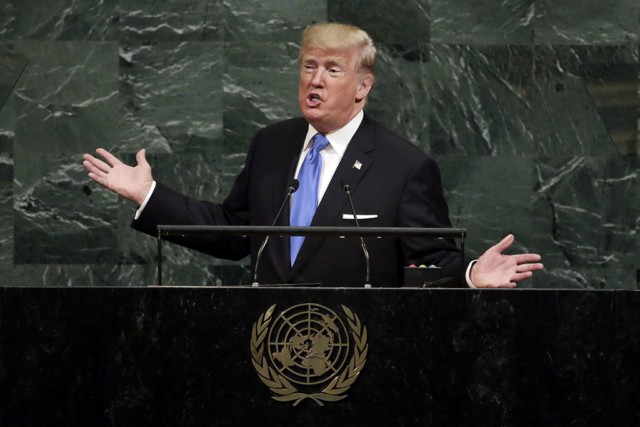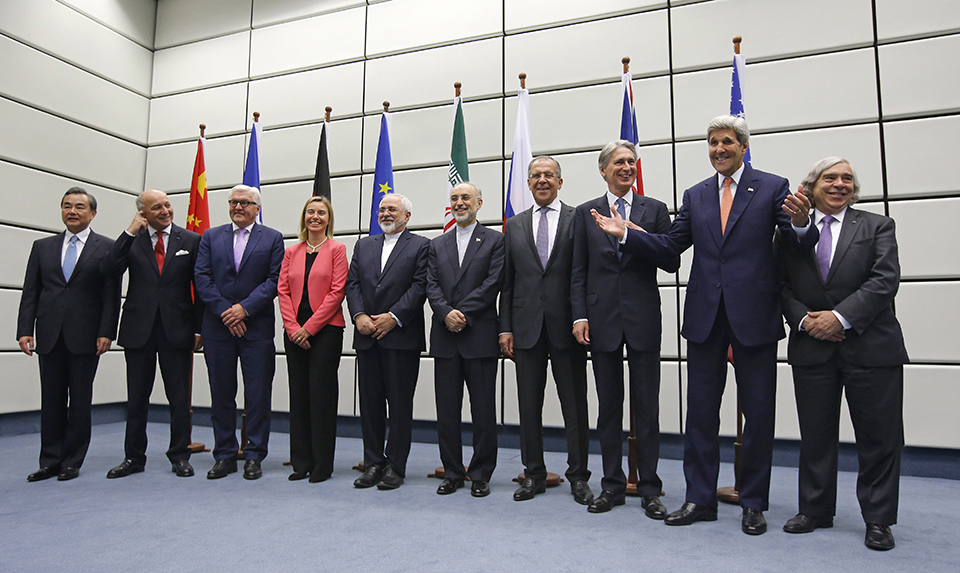U.S. President Donald Trump delivered a hard hitting speech in his first appearance at the United Nations General Assembly. While singling out the DPRK, Iran and Venezuela, Trump said he would always put his country’s interest ahead of everything else. CGTN’s Nathan King reports.
“As President of the United States, I will always put America first.”
The U.S. president gave what some might say is a classic Donald Trump performance, repeating the themes that got him elected. But in stark terms, he singled out what he called the “wicked few” nations, and gave stark warning to the leader of the Democratic People’s Republic of Korea, Kim Jong-un.
“The United States has great strength and patience, but if it is forced to defend itself or it allies, we will have no choice but to totally destroy North Korea,” Trump told the assembled world leaders. “Rocket Man is on a suicide mission for himself and his regime.”
His speech contained an apparent contradiction, however. While calling on the world to unite against Pyongyang’s nuclear and missile testing, he chastised the international community for coming together over preventing a nuclear armed Iran.
“The Iran deal was one of the worst and most one sided transactions the united states has ever entered into. Frankly, that deal is an embarrassment to the united states, and I don’t think you’ve heard the last of it. Believe me.”
Some are questioning whether U.S. policy is now to unite with the international community when its suits Washington’s interests, but rip up agreements it no longer likes. For an answer, I turned to Jonathan Wachtel, who until recently was the U.S. spokesperson at the U.N.
“Look, the interpretation by critics of the administration is that America First is this arrogant, single-minded thing, and it’s just about America being first and the rest of the world can go jump in a lake,” Wachtel said. “The truth is the United States is fully engaged, and the United States will be fully engaged in the international sphere.”
Trump’s speech did not spell out what sort of engagement to expect from the U.S. administration. Instead, it was a robust defense of national sovereignty, and not international cooperation.
 CGTN America
CGTN America
 U.S. President Donald Trump addresses the 72nd session of the United Nations General Assembly, at U.N. headquarters, Tuesday, Sept. 19, 2017. (AP Photo/Richard Drew)
U.S. President Donald Trump addresses the 72nd session of the United Nations General Assembly, at U.N. headquarters, Tuesday, Sept. 19, 2017. (AP Photo/Richard Drew)

